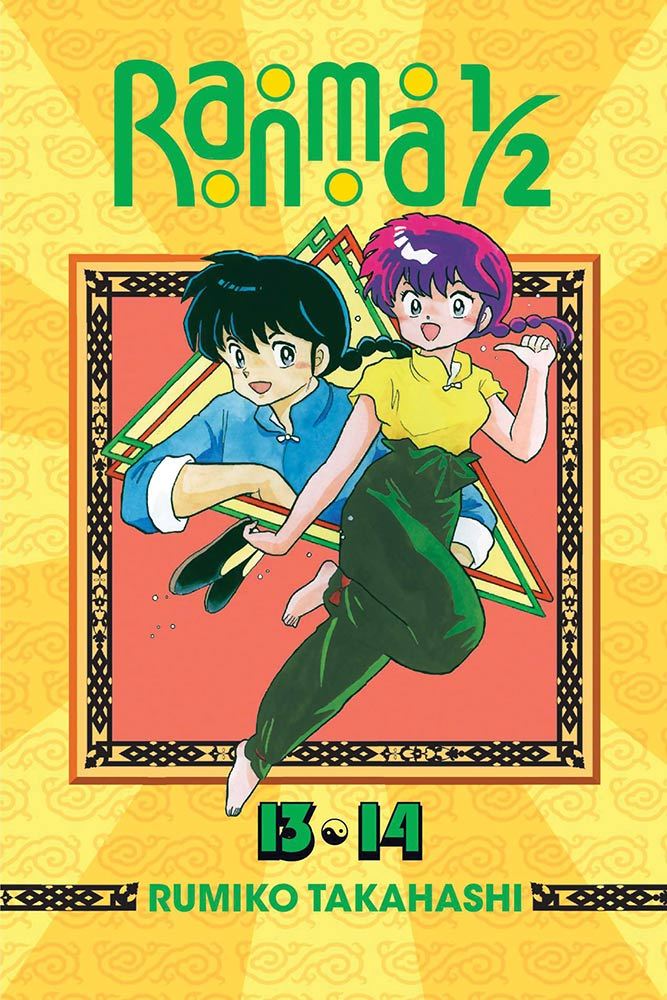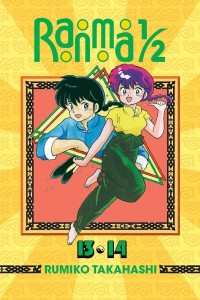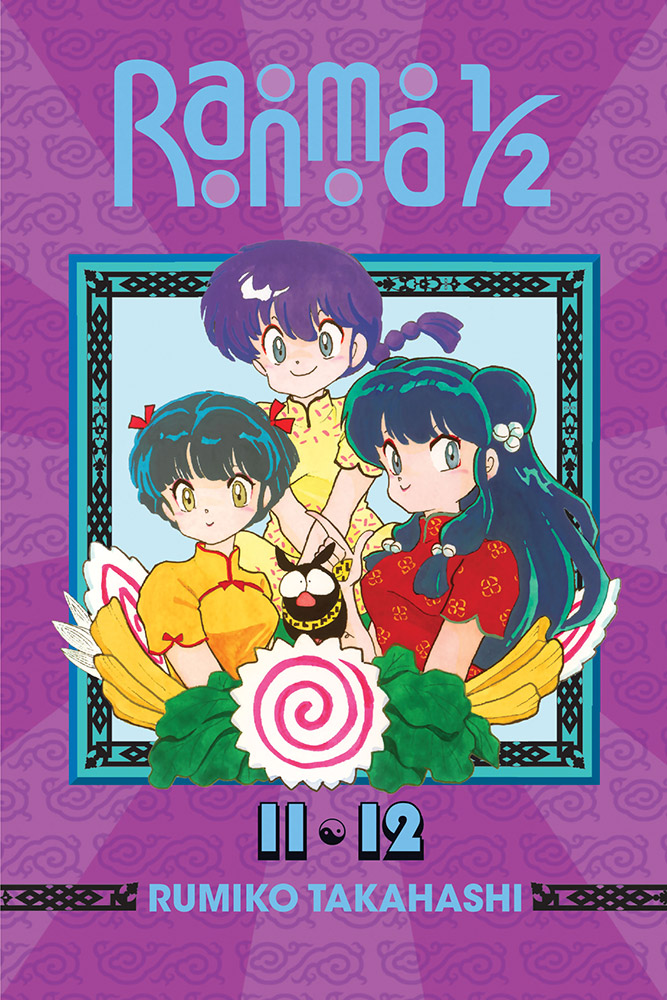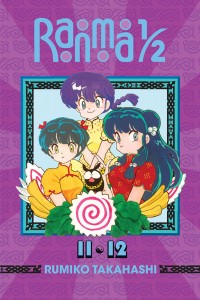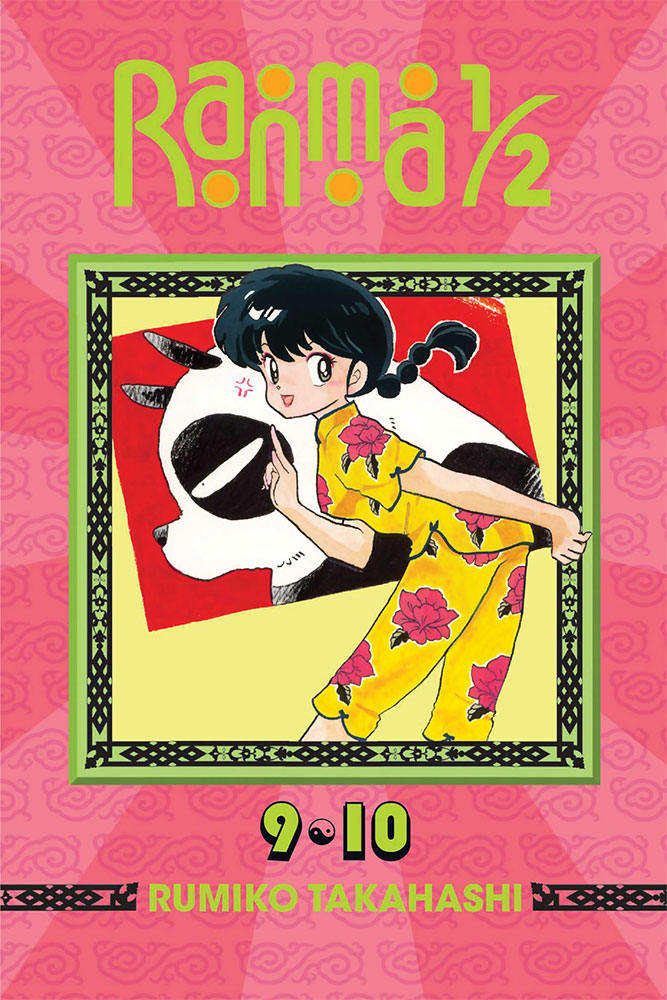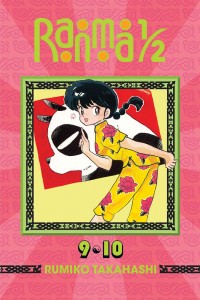By Rumiko Takahashi. Released in Japan by Shogakukan, serialized in the magazine Shonen Sunday. Released in North America by Viz.
Having spent most of the last few Ranma reviews talking about how Ranma is essentially filled with shallow unlikeable characters who do funny things, and that the fan might get upset at a perceived lack of serious examination of them, we now get the thirteenth volume, where Takahashi shows off that, when she decides to write a longer, more serious plotline, she can carry it off. The moxibustion storyline is one of the high points of the series, showing off many of the characters at their best. Not their most noble, or most likeable, but a place where we can sympathize with and root for them.
The basic premise is that Happosai gets really pissed off at Ranma and hits him with an attack that makes him permanently weak – and when asked how to cure it, points out that he’s evil so why should he have bothered to learn the cure? (Note this doesn’t actually answer the question.) Naturally, the now weak Ranma gets attacked by all his past rivals – Kuno, Kuno’s father, Mousse, even Gosunkugi – and can’t do anything about it. You’d think Ryouga would be in here as well… but Ryouga can’t stand anyone who picks on the weak. Which Ranma now is. Ironically, this is what hurts Ranma most of all, and he takes off with his father, Ukyou and Akane to try to figure out how to fix this.
Ranma’s pride and confidence is both his strong and weak point, and having been stripped of his martial artist strength we see how intensely bound up his life is in the Art. It’s especially frustrating because of his burgeoning feelings for Akane – still mostly coming out as deflecting insults – but now that he can’t even take over her dojo he feels unworthy to even speak with her. Notably, he has no compunctions about taking Ukyou along with him rather than Akane – but that’s because Ukyou is providing food, once again he simply doesn’t see her as a romantic interest. Luckily, having heard about the fuss, Cologne comes along as well – Shampoo has returned to China, very conveniently as she’d make this storyline too chaotic – and teaches Ranma a martial arts move that doesn’t require strength in order to succeed.
There were some things in this volume I didn’t care for – getting Ryouga angry enough to attack Ranma by assuming he sexually assaulted Akane made me groan – but for the most part it was excellent, showing off Ranma, Akane, and Ryouga’s strong points. (Ryouga and Ukyou fans take note – when Ukyou sees Ryouga suffering through a nightmare, her first response is to hit him with a mallet so that he’ll sleep harder. Just sayin’.) Of course, there’s also a Vol. 14 in here, and while it’s not terrible, it does suffer by having to follow what comes before it. The strongest story in it is probably the one with Ryouga’s calligraphy martial-arts, which again shows that Takahashi can mine ANYTHING for ridiculous comedy. I also liked that Ranma said Ryouga is the only one he considers his rival – I think he’s serious, too.
We’ve seen Akane unable to swim before, but this is the first major storyline where we see she is heroically, ridiculously unable to swim – even wearing a life preserver is not enough. The two funniest storylines in the volume are also the shortest. In one, Ranma finds his panda-disguised father living it up at a mansion, and has to deal with the “weak, sickly” spoiled brat who has adopted the bear – lots of mocking of shoujo art here. As for Happosai as Santa Claus, teaching two young children how to be just like him, the very premise is horrifying, so much that even Happy realizes he can’t do this, though he ends up making himself ill trying not to be evil. The kids are adorable, and the ending fits perfectly.
So, to sum up: when she tries, Takahashi can make these characters more three-dimensional and realistic, to excellent effect. But most of the time, we see them being jerks to each other for comedic effect, and that’s fine as well.
